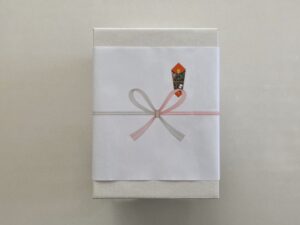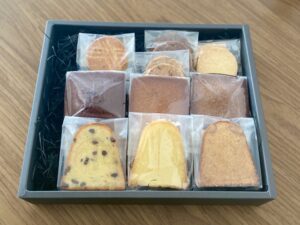As a Japanese person, you might think that I was born with a natural understanding of our country’s complex customs.
But I must confess: for a long time, I struggled deeply with our culture of gift-giving.
It’s a silent language, full of nuance and unspoken rules, and making a mistake can feel deeply embarrassing.
This is my story about navigating the intricate world of “omiyage” and “temiyage.”
The Two Gifts: What’s the Difference?
First, let’s establish the basic difference.
Even many Japanese people use these terms interchangeably, but they serve different purposes.
- Omiyage (お土産): This is a souvenir you bring back from a trip for your family, friends, and colleagues. It’s a way of saying, “I was thinking of you while I was away.”
- Temiyage (手土産): This is a gift you bring when you visit someone’s home. It’s a token of appreciation for their hospitality, essentially saying, “Thank you for having me.”
My First ‘Temiyage’ Failure
I still remember the first time I was invited to a senior colleague’s home for dinner.
I was young and nervous.
I grabbed a cheap bag of snacks from the convenience store on my way there.
When I handed it to my colleague’s wife, her polite smile didn’t quite hide a flash of surprise.
The dinner was lovely, but I felt a sense of unease all evening.
Later, my mother gently explained my mistake.
A temiyage should be something a little special, something you can’t just get anywhere.
It should be nicely wrapped, preferably from a department store or a well-known local shop.
My convenience store snack was seen as thoughtless, even if my intentions were good.
It was a lesson in how a gift’s packaging and origin can speak louder than the gift itself.
The ‘Omiyage’ Pressure at the Office
The pressure of omiyage at the workplace is another challenge.
After any vacation, it’s an unwritten rule that you must bring back a box of individually wrapped sweets for your entire team.
Forgetting this can make you seem inconsiderate.
I once took a trip and completely forgot to buy omiyage.
The next day at work, nobody said anything, but I could feel the subtle shift in the atmosphere.
My colleagues were sharing snacks that another returned traveler had brought, and I felt excluded.
I learned that day that omiyage isn’t just a souvenir; it’s a vital tool for maintaining harmony (“wa”) within a group.
Now, I always buy my omiyage on the first day of my trip to avoid the stress.
What I’ve Learned
Through these embarrassing experiences, I’ve come to understand that this culture isn’t about expensive gifts.
It’s about thoughtfulness and showing consideration for others.
It’s a way of strengthening social bonds and communicating respect without words.
While it can feel like a burden sometimes, understanding this silent language has helped me connect more deeply with the people around me.
And for my foreign friends living here, please don’t be too stressed about it.
The fact that you are trying to understand our culture is, in itself, the greatest gift of all.
You Might Also Like
Learning the key phrases of a language is another great way to connect with locals.
Discover five simple but powerful Japanese words that can make your travels much smoother and more meaningful.
【Japan’s 5 Magic Words】 Unlock Easy Travel & Connect with Locals!






